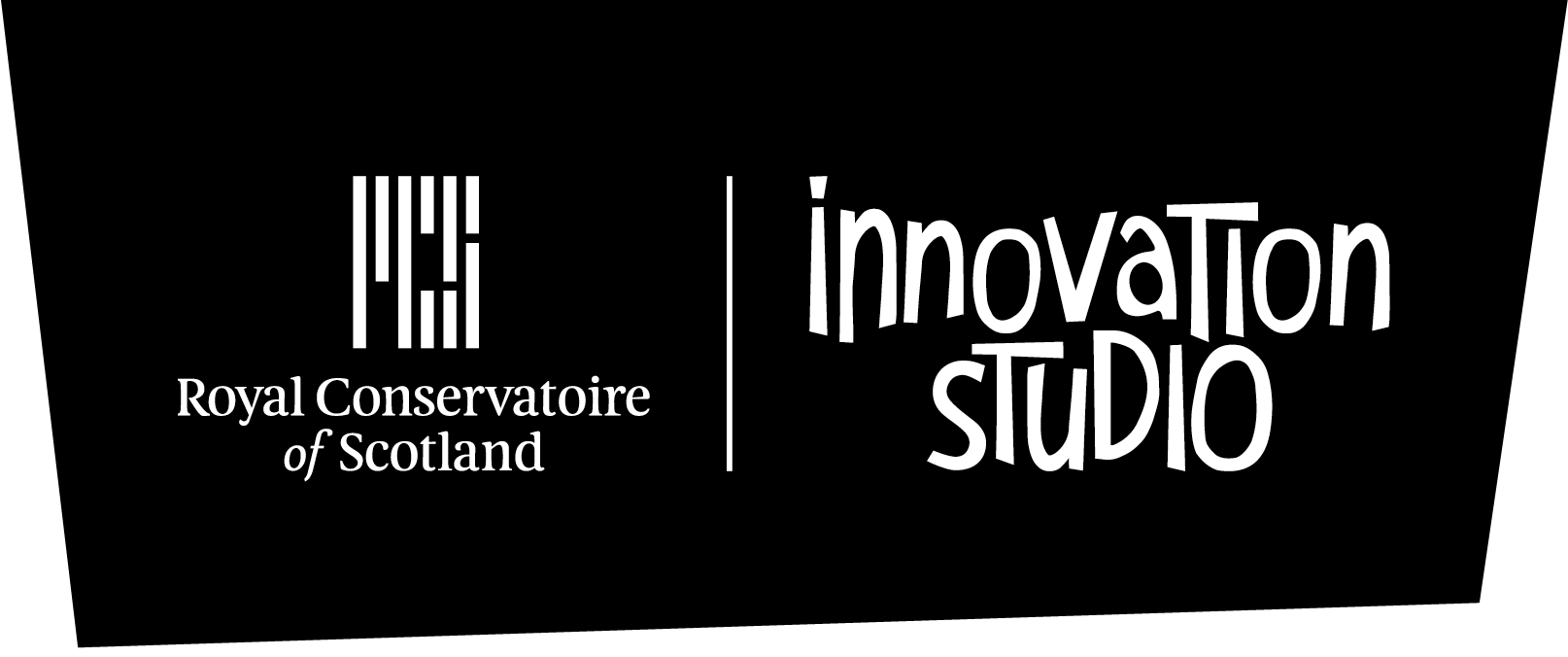At a Glance
The Bubblyjock Collective is an ensemble that performs and promotes music by neglected classical and contemporary Scottish composers. It was founded in 2023 by three RCS alumni: Rosie Lavery (soprano), Anna Michels (piano), and Neil Sutcliffe (accordion).
They applied for Innovation Studio funding to kickstart a collaboration with emerging composer Padruig Morrison, whose practice is steeped in the Gaelic oral tradition, to explore Gaelic text in a contemporary-classical setting. The funding covered research and workshopping time and enabled the creation of a new work for the ensemble, sung in Gaelic, that Bubblyjock first performed at their launch event at the Scottish Music Centre in Glasgow.
The Creative Exploration
The Scottish art song repertoire includes a plethora of settings of Scots poetry, but comparatively little Gaelic text is used by classical and contemporary composers. With a keen interest in incorporating more elements of Scottish culture and identity into their repertoire, The Bubblyjock Collective approached Padruig Morrison to compose a new piece that would set a Gaelic poetic text. Padruig is a composer, researcher, and crofter from South Uist steeped in Gaelic culture and music.
The intention of the project was not just to commission Padruig to write a piece but to collaborate creatively with him, exploring the performer-composer dynamic so that the final work would have a collective creative identity.
The group included workshopping, Zoom meetings, and research time into the project plan. Due to the challenges of workshopping the music at a distance with Padruig and the three performers, most of the composer-performer collaboration happened during the initial stages of the project: researching texts, discussing them, and planning programming around the commission.
From the beginning, they were thinking about how this new work would fit alongside the collective’s other repertoire, which held no Gaelic texts at that point, and how best to present it to audiences unlikely to be fluent in Gaelic. Looking through their repertoire, Rosie, Anna, and Neil settled on ‘Shores’ by Ronald Stevenson as a starting point for the commission. This existing song sets an English translation of the middle verse of ‘Traighean’, a Gaelic poem by Sorley MacLean.
Stevenson’s deeply moving piece was one of Bubblyjock’s favourite songs, and the Collective were keen to examine the full, original Gaelic text. They discussed the themes in the text with Padruig and how these might manifest in a new musical response to the poem.
The piece Padruig wrote as a result of the collaboration, Traighean, is a stark contrast to Stevenson’s song, making it the perfect companion in a programme. It uses air sounds on the accordion to evoke the waves and the wind, quotes traditional melodies linked to the physical places named in the poem, and slowly builds a soundscape for the scenes portrayed in the text.
At the launch concert, Traighean was the last piece in the programme and was received with an intense stillness and focus from the audience. The poet Gerda Stevenson, daughter of Ronald Stevenson, described it afterwards as a ‘miniature epic’.
Since the launch, the trio has programmed Traighean in all their concerts, and it is always remarked upon afterwards. They also experimented with reading the poem in English before performing the work so audiences could fully focus on the music instead of reading a translation in the printed programme, which worked well.
The Bubblyjock Collective plans to record Traighean on an EP to give the work a wider life. They hope to work more with Padruig in the future, as well as other composers, to continue building a repertoire of Gaelic art songs.
Innovation to their Practice
Reflecting on the collaboration with Padruig, The Bubblyjock Collective highlighted that it has given the performers a much greater sense of engagement in the creative process, adding to their connection with the piece when they perform it. In order to work like this with composers in the future, the musicians will reassess how they schedule and budget projects so that meaningful collaborative processes can unfold.
Not only have they successfully incorporated Gaelic text into their own practice and repertoire (and will continue to do so), but they also created a new work to actively expand the canon of the contemporary Scottish art song genre.
Dive Deeper

More Case Studies
Contact us
If you’d like to find out more about Innovation Studio, our work and how to get involved, get in touch, we'd love to hear from you.

Sign up for our newsletter
Sign up for our newsletter and be the first to know about upcoming events, opportunities and news.








